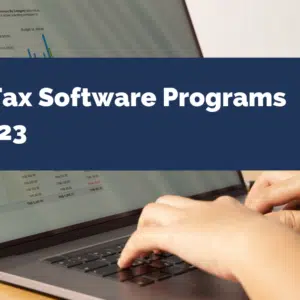As the host of the Money Girl podcast, one of the most common questions I get from show listeners is about claiming the mortgage interest tax deduction–like this one from Alice:
If my husband and I forgot to take tax deductions for the past couple of years for our mortgage interest, what can we do? Is there a statute where you must use it or lose it?
What Is the Mortgage Interest Tax Deduction?
If you’re not familiar with the mortgage interest deduction, it’s a great tax benefit for homeowners because it allows you to deduct the amount of mortgage interest you pay from your taxable income.
If you’re a typical homeowner, you’re probably paying big bucks for your mortgage each year—so this tax deduction can save you a chunk of change by substantially lowering your tax liability.
Table of Contents
- Who Can Claim the Mortgage Interest Tax Deduction?
- What Is Secured Debt?
- Can You Deduct Interest on a Mortgage Refinance?
- Can You Deduct Interest on a Home Equity Loan?
- What Is a Qualified Home?
- What Are Itemized Deductions?
- How to Claim a Forgotten Mortgage Interest Deduction
- The Bottom Line – Mortgage Interest Tax Deduction
Who Can Claim the Mortgage Interest Tax Deduction?
However, not every homeowner is eligible to take the mortgage interest tax deduction. My first response to Alice’s question is to make sure that she and her husband are eligible to claim it.
Here are the two major hurdles you have to jump over in order to take advantage of the mortgage interest deduction:
Rule #1: You must have secured debt on a qualified home in which you have an ownership interest.
Rule #2: You must file your federal income taxes using Form 1040 and itemize deductions on Schedule A.
What Is Secured Debt?
The first rule above has two parts that I’ll define: “secured debt” and “qualified home.” According to the IRS, secured debt is one in which you sign an instrument—like a mortgage, deed of trust, or land contract—that :
- Makes Your Ownership in a Qualified Home Security for Payment of the Debt,
- Provides That Your Home Could Be Sold to Satisfy the Debt, And
- Is Recorded Under Applicable State or Local Law
In other words, your home must be on the line as collateral if you don’t pay the mortgage. In general, the only time a mortgage might not be secured is if you have a wraparound mortgage, purchase with owner financing, or borrow funds to buy a home from a friend or relative.
Can You Deduct Interest on a Mortgage Refinance?
There are two types of debt that qualify for the mortgage interest tax deduction: acquisition debt and equity debt. Acquisition debt is any secured loan you get to buy, build, or remodel your main or second home.
It includes refinanced debt up to the amount of your old mortgage balance just before doing the refinance. The total amount of interest you can deduct for acquisition debt is limited to one million dollars for your main and second home (or $500,000 if you’re married and filing separately).
Can You Deduct Interest on a Home Equity Loan?
Equity debt, as I mentioned, also qualifies for the mortgage interest deduction. Equity debt is any loan secured by your main or second home that you took out for a reason other than to buy, build, or remodel.
It could be money you spent to start a business, pay for education, or to take a vacation, for instance. It has a much lower limit than acquisition debt for claiming the interest deduction: $100,000 (or $50,000 if you’re married filing separately).
What Is a Qualified Home?
Now, let’s discuss the definition of a “qualified home” in the context of the mortgage interest deduction. According to the IRS, a qualified home can be your main home and a second home. Either property can be a single-family residence, condo, cooperative, mobile home, trailer, time-share arrangement, or even a boat, as long as they have sleeping, cooking, and toilet facilities.
If you’re married and file a joint tax return, your qualified home(s) can be owned by just one spouse or owned jointly. If you’re married and file separate returns, you can each claim the mortgage interest for one qualified home only—unless you consent in writing that one spouse can claim the deduction for both homes.
So, assuming that Alice does indeed have secured debt on a qualified home, she must also comply with the second IRS rule for claiming the mortgage interest deduction, which is itemizing deductions on Schedule A.
What Are Itemized Deductions?
Itemized deductions are eligible expenses that you can report on your federal tax return to decrease your taxable income. You have the choice each year to claim either a standard deduction for your tax filing status or to add up all your actual deductions and claim them on Schedule A of Form 1040.
For example, if Alice and her husband file taxes jointly, their standard deduction for 2023 is $27,700. If they have more than $27,700 in total deductions to itemize, they’ll come out ahead by itemizing as compared to taking the standard deduction.
Since most homeowners pay a boatload of mortgage interest each year, it’s likely that Alice’s family is no exception and would have plenty of deductions to make itemizing worthwhile.
How to Claim a Forgotten Mortgage Interest Deduction
So what should Alice do if she and her spouse were eligible for several years’ worth of mortgage interest deductions, but they slipped up and didn’t claim them? That could mean they overpaid taxes for years. Any time you discover an error on your tax return that’s due to your income, tax deductions, tax credits, or tax filing status, you should amend it using Form 1040X.
You must file a separate Form 1040X for each year you amend and it must be a paper form because the IRS doesn’t allow amended returns to be filed electronically. Also, remember your state tax liability may change if you amend your federal return.
Generally, to claim a tax refund you must file Form 1040X within three years from the date of your original return or within two years from the date you paid the tax, whichever is later. That means Alice can probably amend her returns for 2023, 2022, and 2021 and reclaim her precious but forgotten tax breaks.
Who is entitled to the deduction if you own a home with multiple people or are not on the mortgage or title? When you sign up at SmartMovesToGrowRich.com one of the free gifts you’ll receive is the “Mortgage Interest Tax Deduction FAQ Video” that I created to answer those common questions and more.
The Bottom Line – Mortgage Interest Tax Deduction
The mortgage interest tax deduction is a significant benefit for homeowners, offering the potential for substantial tax savings. Eligibility criteria and the necessity of itemizing deductions must be thoroughly understood to capitalize on this advantage. For homeowners like Alice, revisiting past tax returns to identify and rectify missed deductions can prove financially beneficial.
Amending a tax return requires careful attention to IRS guidelines, and taking corrective action within the stipulated timeframe is crucial. Homeowners are advised to consult with tax professionals to ensure proper compliance and to maximize their potential benefits.








I failed to include our mortgage tax and interest when I took to be filed…..what should I do? I called the lady who does my taxes but she is off work today and tomorrow. Thanks
Hi John and Brenda – It’s not a problem. File an amended return (1040X) and claim the property deductions. You may have to wait a while if you’re expected a refund, but it will come soon enough.